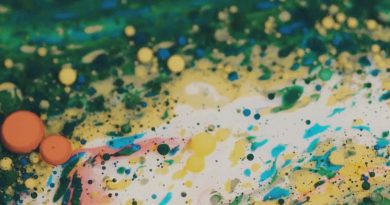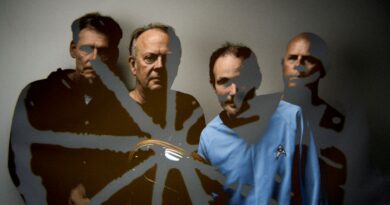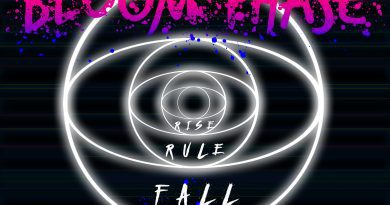A Chat with Giampaolo Pasquile (21.05.25)
Acclaimed record producer, mix engineer, and musical visionary Giampaolo Pasquile has released his highly anticipated new album, The Fake Truth. Also, as a seasoned record producer, mix engineer, and artist with over 20 years of experience in the music industry, his work spans multiple genres and has led to collaborations with major international artists, such as Will.I.Am, Lil Wayne and Mike Posner, as well as involvement in chart-topping releases and multi-platinum projects. In this interview, we spoke with Giampaolo Pasquile about all things music.
OSR: The Fake Truth is a powerful title. What does that phrase mean to you, and how does it connect to the album’s themes?
Pasquile: The Fake Truth reflects the paradox of our current era, one in which the boundaries between reality and illusion have become increasingly blurred. We live in a time where even something as simple as an email response or a job proposal can feel manufactured, sometimes even written by bots or generated by AI. Many companies present digital personas that may not even exist. The same is happening in music: it’s now possible to create entire songs using AI and then artificially inflate their popularity with bots generating streams. But to what end? What are we really creating, and for whom? We’ve become distracted, even disconnected. We watch films while scrolling through our phones. We don’t write heartfelt emails anymore; we rely on AI to fill in the blanks. And now, even music, the most human of all arts, is being replicated by algorithms. Some people even say they prefer AI-generated tracks to real ones. I’m not against AI. On the contrary, I see it as an incredibly powerful tool and an inevitable part of our future. But The Fake Truth is a warning, or maybe a reflection, a call to embrace technology as a collaborator, not a replacement. We must not let AI do the thinking for us or let our creativity go numb. This album is my way of exploring that tension between what’s real and what’s manufactured, between instinct and automation, between truth and the version of it we’re being sold.
OSR: You’ve spoken about nostalgia playing a major role in your creative process. How do you navigate honouring the past without being trapped by it?
Pasquile: I see nostalgia as a powerful emotional tool, not a limitation. As someone who’s equally passionate about the future and fascinated by technology, I strive to fuse both worlds. I love to blend vintage sounds and analog warmth with modern production techniques and cutting-edge tools, including AI. That tension between past and future is where I find the most creative energy. Maybe that’s what the present really is: a constant negotiation between where we’ve been and where we’re going.
OSR: What was your process for integrating AI into your workflow without letting it overshadow your creative voice?
Pasquile: Well, there are a few things I probably shouldn’t reveal, LOL, but in all seriousness, I’ve found that using AI as a tool rather than a crutch is key. I’ve integrated AI into my workflow in ways that enhance efficiency without compromising my artistic identity. For example, I’ve used AI to recreate specific sounds or textures that used to take me hours or even days to shape manually. It’s faster, more cost-effective, and sometimes the results are truly remarkable. That said, I’m very conscious about maintaining a balance. AI is a powerful assistant, but I never let it take over the core creative decisions. The emotion, the instinct, the imperfections, those still have to come from me. I believe we shouldn’t ignore new technologies, but we also shouldn’t become purists who resist every change. If we stay too rigid, we risk being left behind while the world moves forward. The key is to adapt without losing your voice.
OSR: How did you choose when to use real instruments versus digital emulations on this album?
Pasquile: In fact, all the instruments you hear on the album are real. I wanted to keep the organic feel intact because there’s a certain soul and imperfection that only real instruments can bring. Where I did involve AI, it was more about collaboration than substitution. I used it to regenerate and repurpose some old recordings of mine, sounds I had captured years ago and wanted to breathe new life into. So while AI played a supporting role, it never replaced the human touch. I see it more as a fast, efficient collaborator who helped me enhance textures and reimagine elements from my own creative archive. The foundation, though, remains entirely real.
OSR: How do you approach blending vintage sounds, like tape saturation or analogue synths, with high-end modern production techniques?
Pasquile: I don’t think there’s a single formula for this. It really comes down to personal taste. Blending vintage textures with modern clarity isn’t necessarily a groundbreaking approach these days, but how each producer does it is what makes the difference. For me, it’s all about contrast. I love the idea of mixing old and new, both in sound and in style. It’s like the way I dress: I might pair something vintage or classic with a bold, modern piece. That contrast creates identity. The same goes for my music. I often use analog gear, tape saturation, and retro synths, but I shape them with modern tools to bring freshness and precision. Even my home and studio are designed that way, where timeless elements meet contemporary design. It’s part of who I am, and I think that blend gives the music a sense of familiarity with a forward-thinking twist.
OSR: Were there any sonic challenges you faced in making AI-generated elements feel emotionally resonant or organic?
Pasquile: Absolutely. AI isn’t perfect, and in many ways, that’s a good thing. One of the main challenges I faced was preserving the emotional warmth and nuance of certain elements I regenerated using AI. For example, when I extracted a drum track from an old vintage production of mine to reuse in this album, the raw result lacked some of the original frequencies and subtle textures that gave it life. To fix that, I had to carefully process the audio, using specific tools to clean it up and restore the missing frequencies, essentially rehumanizing the sound. AI can give you the structure or the shortcut, but it’s still up to the producer to bring in the emotion and detail. Making AI-generated elements feel organic requires intention, skill, and often a lot of post-work to make sure they sit naturally in the mix.
OSR: There’s a philosophical undertone to the album, one that questions memory, time, and truth. Was this a conscious direction, or did it emerge organically?
Pasquile: It definitely emerged organically. At first, my intention was purely practical, to create music as quickly as possible, knowing that today’s listeners often skip tracks within seconds. We’ve become conditioned to scroll, swipe, and chase the next reel, the next song, the next distraction. It raises the question: if no one has time to truly listen, why should we invest so much time in making? That thought stayed with me for a while. I even read about how film studios are experimenting with 15-minute feature films. Everything is shrinking, our attention spans, our patience, our connection to the present moment. But then, that nostalgic part of me resisted. I found myself spending weeks refining a single composition or mix. It was as if my creative instinct refused to let go of the idea that time still matters, that depth still matters. So yes, the philosophical themes weren’t planned in advance, but they surfaced naturally as I navigated this tension between speed and meaning, between a fleeting digital culture and the timeless value of emotional honesty.
OSR: Do you feel a sense of responsibility to preserve traditional forms of music-making in your work, or are you more focused on transformation?
Pasquile: Absolutely. I do feel a strong sense of responsibility to preserve traditional forms of music-making. And honestly, I believe all artists and producers should. Our craft is built on a rich legacy of techniques, instruments, and human expression that can’t be replicated by machines alone. There’s something sacred in the sound of a real instrument, in the imperfection of a human performance, in the emotion that comes from a take that wasn’t “perfect” but was true. That said, I’m also passionate about transformation. I don’t see preservation and innovation as opposites, they can and should coexist. My goal is to honour the past while reimagining it through the lens of today’s tools and technology. Tradition gives my work depth and soul, while transformation allows it to evolve and remain relevant. In the end, it’s about balance: protecting what matters while staying curious and open to what’s next.
OSR: How do you define authenticity in an era where so much of music is algorithmically driven or artificially generated?
Pasquile: Authenticity, to me, means creating something that reflects real emotion, real intention, and real connection, regardless of trends or algorithms. And I feel we’re rapidly losing that. Today, so much of the industry revolves around data: how many streams, how fast a song performs, how well it fits the algorithm. Artists are under constant pressure to chase numbers rather than express themselves. But are those numbers even real? Are all those streams coming from actual people listening, or from bots, or background noise in curated playlists? And more importantly, are we still listening at all, or just consuming? Authenticity now is about resisting that pull. It’s about creating music that still speaks to someone’s heart, not just to a system. It’s about making art that lasts beyond a swipe or a skip. In this era of artificial everything, staying human might be the most authentic act of all.
OSR: As a veteran producer, how has your view of the studio evolved now that the lines between musician, engineer, and machine are increasingly blurred?
Pasquile: I can feel that shift on a very personal level. Before AI, I was regularly called in to produce beats, master tracks, or engineer sessions, roles that now, in some cases, can be partially handled by software. As a producer, I’d be lying if I said I wasn’t a bit concerned. But I’m not alarmed. This is just another evolution in the music industry. It reminds me of when record labels had to completely rethink their business model after CDs were replaced by illegal downloads, and later by streaming platforms. Eventually, they adapted, built digital catalogs, and found new revenue streams. The same is true for us as producers. We need to redefine our value, not resist change. The key is to keep learning. We have to embrace new tools, including AI, while still mastering the fundamentals that make music human. And let’s be clear, an AI tool in the hands of an experienced producer is not the same as in the hands of someone just starting out. It’s how you use it that makes the difference. In that sense, the studio hasn’t lost its soul, it’s just expanding its possibilities.
Many thanks to Giampaolo for speaking with us. Find out more about Giampaolo on his Instagram, Facebook, and Spotify.


